The Importance of Authenticity
Nigel Hughes, SVP Global Innovation and R&D, Kellogg Company
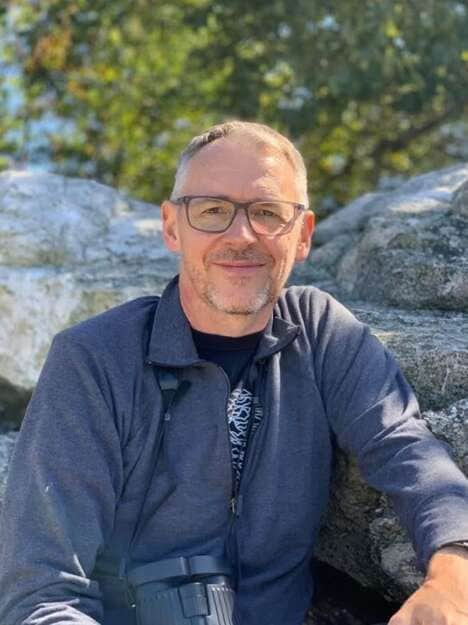 Believing that food is a "celebration, a language, and even a personal ethos," Nigel Hughes is the SVP of Global Innovation and R&D at Kellogg Company. Nigel is passionate about diversity across his team and globally when it comes to the food system and food access for all.
Believing that food is a "celebration, a language, and even a personal ethos," Nigel Hughes is the SVP of Global Innovation and R&D at Kellogg Company. Nigel is passionate about diversity across his team and globally when it comes to the food system and food access for all. 1. What does innovation mean to you?
When I think about innovation, I go right back to what I consider the source, which was Joseph Schumpeter back in the 1940s, who talked about creative destruction as driving business. So for me, innovation is any form of differentiation that creates value in a business. So it's not just about products, it's about processes. It's about everything from ingredients of raw materials, from my point of view, right through to the customer and consumer.
2. How does your team generate new ideas?
We really use three streams to generate new ideas and new thinking. The first is we've got some great brands and a strong current business. So we obviously look at what those brands mean to our customers and consumers and therefore, how might they see them being interpreted in the future?
The second is we've got a lot of inputs, ingredient screens with food manufacturers, stuff that goes right back to the farm. It goes right through the milling and preparation of new ingredients and new components, new packaging and the like.
The third stream I'd characterize as foresight. It's working and talking with people, not just in our own industry, not just in the food space, but across many different industries. It’s looking at what's shaping society going forward and asking what are those paradigm shifts going to be in the way we live and therefore the way we consume?
3. Do you have any specific rituals for resetting your team to be creative?
Creativity is at the heart of everything we do. We are about creating a future, and for me, it's a little less about specific rituals. It's more about a deeply held cultural belief in the power of diversity, because that's the heart of creativity. It's where different thinking, different cultures, different knowledge bases come together that you're going to get the friction of creativity.
And there was talk about it as the friction. You only get movement if you have friction between two surfaces, and you only get that friction when you get diversity of thought and diversity of background. So we really enshrine that notion of diversity in everything we do, bringing different groups of people together internally, but then provoking ourselves with the external world and getting people to come and talk to us about that lived experiences, about their insights, and therefore how that will influence what we are going to do in creating that new future.
4. How do you identify trends? What resources does your team use to spot trends and consumer insights?
We do a lot to identify trends by embedding ourselves in different food cultures, because food truly is at the center of our own cultural definitions. I grew up in a small town on a small island called the UK and I've carried that food culture with me wherever I've been. When I lived in Italy, when I lived in France, and now that I live in the United States, that culture will stay with me throughout my whole life. A lot of the foods that are most fun to me are things that my grandmother made 30, 40 some years ago. And so it's really important that we embed ourselves in different people's food cultures.
The other thing about creativity in general, is that it's also about finding the interfaces and forcing ourselves into those interfaces with new things and new spaces. A Great example is the massive changes we're seeing in urbanization, what's happening with the way in which we live? How do we live? There was a huge trend pre-COVID where we got greater and greater urbanization. Everybody was moving into the cities, and post-COVID, it's a little bit different.
Yes, people are living in cities, but they're living differently in cities because they're more conscious of interactions and contact with each other and the pluses and minuses of that. So, again, it's really important that we understand those ethnographers, those psychologies and how those are changing.
5. What is the biggest challenge you face when innovating?
I think the biggest challenge we face is not so much insight. It's scaling. It's scaling so we can get insights and we experiment extensively with new food designs, bringing in new ingredients, streams, and putting together new concepts for consumers. And we can get that spark of a concept and a food which resonates with people.
The question is then how do you effectively scale that? And that's the real trick, because it's about getting to the universality of what you're creating such that people across the world will be able to connect with that. I'll give an example from our own food portfolio, and that's the Pringles brand. The Pringles brand is really an incredible brand, and I'm not going to talk about the food per say, but talk about the way in which we we communicate about that brand through gaming.
Gaming is the universal. These days, there are more people playing through gaming than through physical sport. So any notion that this is niche is absolutely wrong. That brand is all about social connection and therefore gaming fits beautifully in terms of an innovation stream and we can then work off that.
So that's the universal and therefore you can get scale when you start with a new innovation or a new brand or a new proposition. It's always really challenging to identify that universal and therefore think about how can you effectively scale it.
6. Has there ever been an instance where another industry has influenced innovation at Kellogg?
I think for all of our great innovations, there hasn't been an instance where another industry hasn't influenced us because it's about the way in which the world has changed and our lives change that really drives our innovation.
One area that we've been looking at recently is the whole area of the changes in driving. Now, this hasn't quite happened yet, but we all know that we are on the cusp of having self-driving cars. Once you have self-driving cars, that completely changes the way that people can potentially consume food on journeys. And it's really interesting for us to say, well, what does that new occasion really mean?
How does that fit with our current brands and our current food offerings? But what kinds of new food offerings are there going to be that come from that? I do have a second example, which is perhaps a little bit more distant in some ways, but it really has influenced the way we think, and that's the toy industry.
So you might say, well, what's a food company like Kellogg got to do with the toy industry, but the innovation model for the toy industry is really interesting. Over recent years, the innovations have been largely driven by putting microchips in toys, so that they become more interactive. And so a lot of that innovation has been driven by the cost of the microchips and tracking the cost of the microchips to see when those microchips can be incorporated in the toys. We have taken a similar outlook on plant proteins because we know that people would like to have plant proteins in their foods, but at the moment they're quite expensive.
So what we're doing is working with a bunch of different people who are bringing new plant proteins to the market and looking at how the costs of those plant proteins are tracking over time so that we know when will be the right time to build them into our accessible foods. So yeah, we're constantly influenced by other industries.
7. What makes an innovative culture? How do you create a culture of innovation?
The one word I would use is diversity, and that is absolutely critical. And today it's not just about the amount of diversity you can have within your own company. That's just the beginning. It's the diversity and the capacity to build relationships with other people within the food system and beyond. That makes the biggest difference for us.
I'm very lucky in that I work for a company whose brand is written on the front of the building. Kellogg. And when I pick the phone up, everybody has heard of Kellogg, and that's a huge advantage, and opportunity for me, because most people will therefore say, okay, let's talk, let's understand, and what can we do together?
So tapping into that diversity both inside the company, across the company, but also really importantly, beyond the boundaries of the company is absolutely critical. And diversity is great, but you've then got to listen to it and build it into your thinking. So it's really important to me that we build cultural norms that allow new thinking to flourish and people with divergent views to be listened to.
8. Looking to the Future, how will Kellogg continue to be a leader in innovation?
I think I think we'll continue to be a leader with innovation when we truly understand our foods and our own brands, because it's from that heart that we can then start to create new futures. It's when we are confident enough to embrace the changes that are happening beyond the company–that could be regulatory changes or things like climate.
I believe we're going to be stepping into one of the most innovative periods that mankind's ever had–certainly bigger than the Industrial Revolution–as we tackle the climate revolution and its impact on the food system. The food system contributes 30% towards greenhouse gases and climate. Therefore, we've got to really address how we tackle that within this incredibly complex but fascinating thing called the food system.
All the ingredients streams and the way we convert those ingredients streams into great foods and the way we distribute and sell those foods. So I think we've got an incredible role to play as a major food player in defining that future.
9. Can you speak more about the authenticity megatrend and its impact on Kellogg Company?
The space of authenticity is critical to us. People are more and more questioning the foods that they eat, the grounds on which they choose those foods. And that is no longer just about the brand and what is represented on the shelf. It goes right back to the ingredients where the ingredients are sourced from, how the ingredients are grown, and how they're processed and converted into food.
And it's really exciting for me that the more people become aware of those things, the more sensitive people become to those things, the more opportunity that gives us to innovate in those spaces. So we've got some really exciting programs, right back to working with farmers on such things as for our Pringles brand using the ugly potatoes that might get thrown away.
And those are real authentic potatoes, right? Using those ones and actually putting them into the food stream so that we don't have the levels of food waste that we've had in the past working with our fruit providers. I'll give you the example of our brand Special K. People want really authentic fruits and nuts in those foods. They're looking for the quality of those foods and they're willing to pay for that.
And that's fantastic because again, it just opens up more streams for innovation. So I think the theme of authenticity is here to stay. That's wonderful. That's wonderful because it allows us to create wonderful foods with and for our consumers. But it also creates value for farmers and for all of those incredible people who are part of this huge network that we call the food system.
References: kelloggcompany
Featured Articles

Printed Snack
3D-printed snacks and garnishes become more popular

Drought-Friendly
Food and beverage brands offer products based in water-conserving ingredients
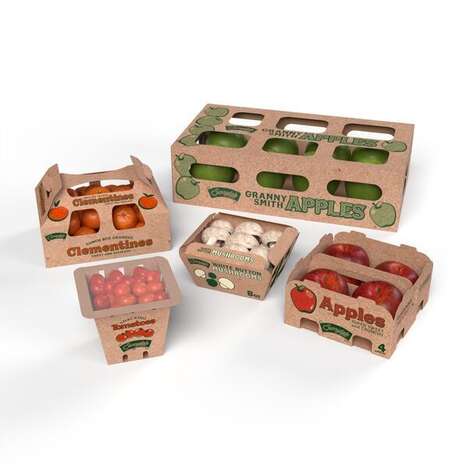
Fiber Packaging
Fiber-based packaging solutions are being used for sustainability purposes
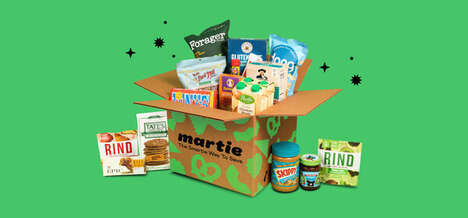
Subscription Grocer
Grocery subscription services help users access limited or affordable items

Cereal Milk
Cereal milk is transformed into a selling point in itself
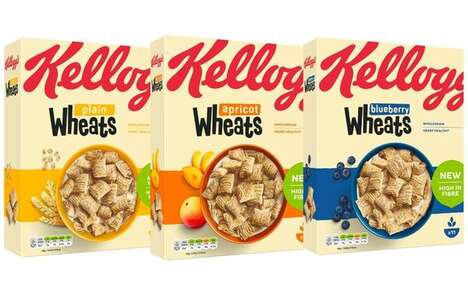
Keto Cereal
Keto-friendly cereal options offer reduced sugar content
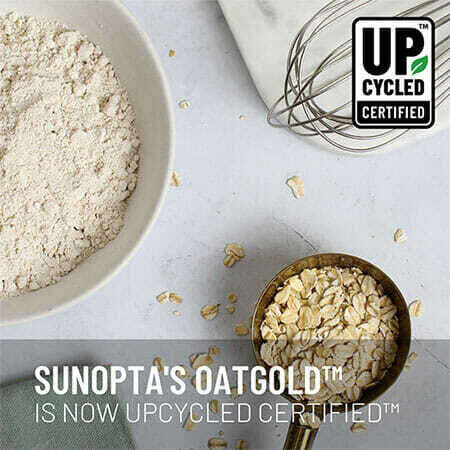
Upcycled Baking
Baked goods are being made with upcycled ingredients to cut down on waste